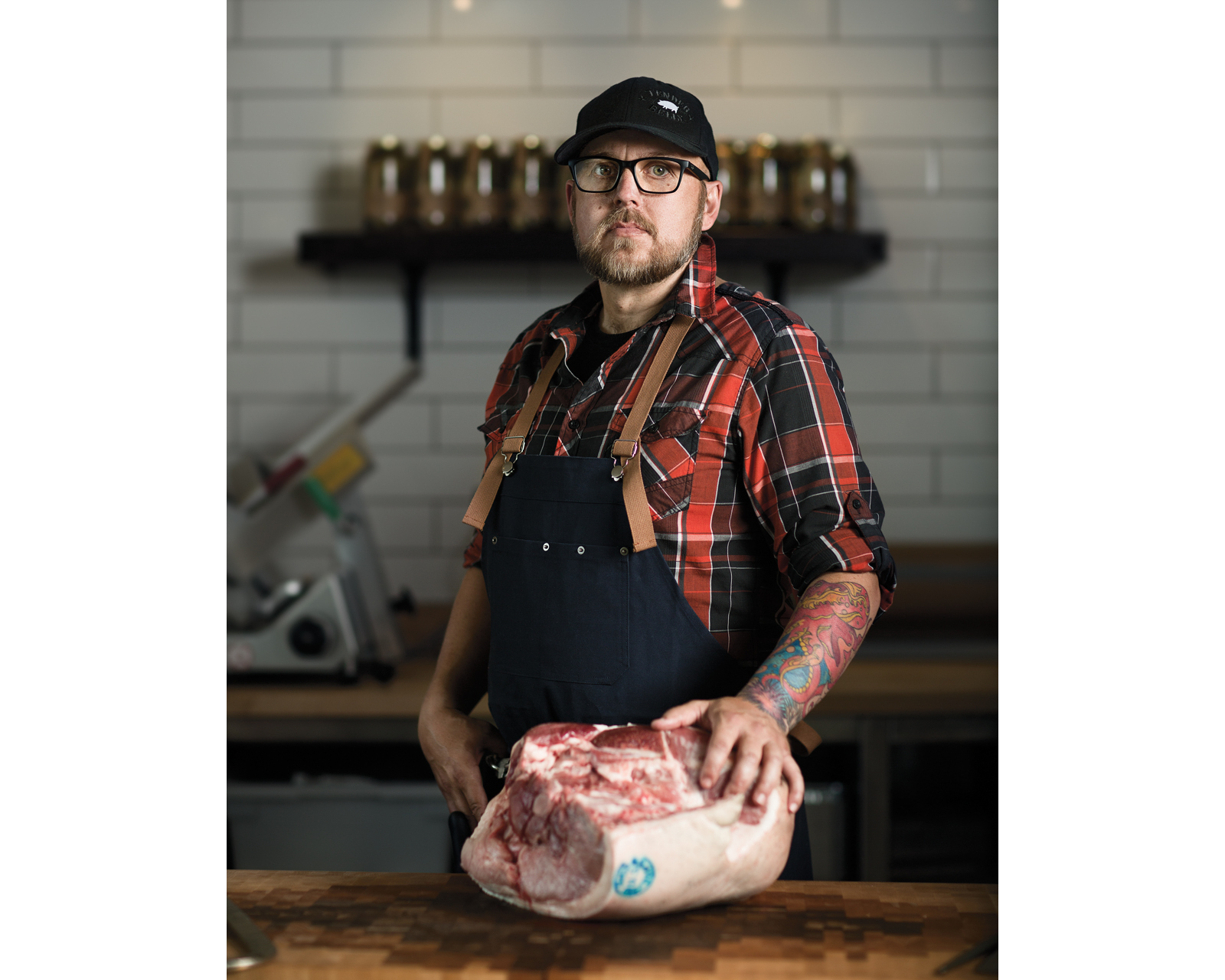The Local newsletter is your free, daily guide to life in Colorado. For locals, by locals.
A butcher and an Army sergeant first class walk into a bar. No, this isn’t the start of a bad joke; it’s the beginning of an unexpected collaboration between the largest branch of America’s military and a guy who, outside of an apron, has never worn a uniform: Jason Nauert, the director of Colorado’s Rocky Mountain Institute of Meat.
Since the fall of 2014, Nauert has been training Green Berets—elite soldiers whose missions take them to the most remote parts of the world—on how to identify and buy healthy animals, properly butcher them, and cook and eat as much of the animals as possible. That’s because early in 2014, the Army came looking for Nauert to help them solve a problem they were seeing around the globe: soldiers falling ill after consuming meat they’d purchased locally, which is often prepped or stored differently than in America. Sergeant First Class Myron Billingsley found Nauert and Colorado Springs–based RMIM, one of just a few butchery schools in the country, after a lengthy internet search. A few phone calls later, Billingsley and a handful of colleagues met with Nauert at a Colorado Springs brewpub.
“I was excited, but really nervous, about meeting them,” says 43-year-old Nauert, a Colorado native and lifelong hunter and fisherman. “All I was thinking was, ‘These guys are U.S. Army Special Forces. I really hope I don’t piss them off or mess this up by saying something stupid.’?”
He didn’t. After successfully proposing a training course that would consist of in-person butchery lessons and a field guide, Nauert got to work designing and writing the curriculum. It’s similar to the American Culinary Federation’s professional butchery course—except that it teaches the soldiers how to work in the outdoors without the luxuries and equipment (no butcher knives or stainless steel tables) of a commercial kitchen. To develop the training, Nauert tapped into his 30-plus years of hunting experience, researched food safety in environments where walk-in coolers don’t exist, and talked with soldiers to learn about conditions in the field. An added challenge? The entire written manual had to fit into a pocket of the Green Berets’ fatigues.
Nauert says that two years in, the soldiers seem to appreciate his hands-on approach, which includes practice in a kitchen and the outdoors. Plus, upon finishing, soldiers receive ACF-recognized certificates of completion that could help them get more advanced food industry jobs if they someday move to the private sector.
Although the program is still fairly new, Nauert says he’s confident these U.S. soldiers stationed abroad are not only staying healthier, but are also getting the optimal amount of nutrition from the animals they are now sourcing, butchering, storing, and cooking themselves. He expects a full report from the military on his own performance and the benefits of the training within the next six to 12 months. “But for now,” Nauert says, “we are working hard and training hard.”









